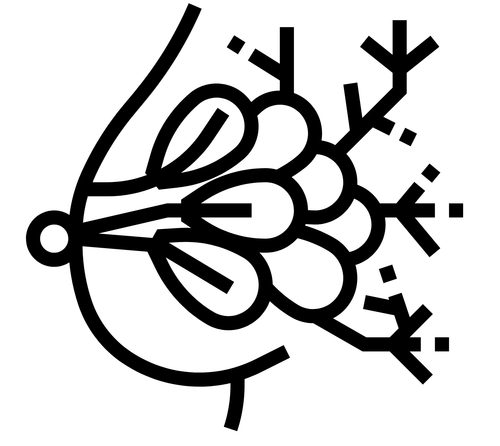Product Description
Cellevat3d™ NanoMatrice™ Neuro
Cellevat3d™ NanoMatrice™ is a nanofiber-based platform designed for in vitro testing that can be used as a powerful tool for studying cells in 3D applications due to its high resemblance to the extracellular matrix.
Neuro application have already been successfully used and generated results in cell culture applications.
- Valuable platform for studying myelination biology with human-derived cells
- Enables exploration of myelin-related diseases; schizophrenia, multiple sclerosis, autism
- Powerful tool for investigating mechanisms and therapies for complex neurological disorders
Cells Tested:
|
Human Neural Progenitor Cells (HNPC) |
Induced Pluripotent Stem Cells (iPSC) | iPSC derived Oligodendrocytes | iPSC derived Glial cells |
| iPSC derived Neurons | iPSC derived Astrocytes | Microglia (BV2) | Retinal cell |
References
1. von der Bey M, De Cicco S, Zach S, Hengerer B, Ercan-Herbst E. Three-dimensional co-culture platform of human induced pluripotent stem cell-derived oligodendrocyte lineage cells and neurons for studying myelination. STAR Protocols, Volume 4, Issue 2, 2023, 102164, ISSN 2666-1667, https://doi.org/10.1016/j.xpro.2023.102164
2. Dahlin LB, Stenberg L, Englund-Johansson U, Johansson F (2019). Traumatic Peripheral Nerve Injuries: Experimental Models for Repair and Reconstruction. In: Risling, M., Davidsson, J. (eds) Animal Models of Neurotrauma. Neuromethods, vol 149. Humana, New York, NY. https://doi.org/10.1007/978-1-4939-9711-4_9
3. Frost HK, Andersson T, Johansson S, Englund-Johansson U, Ekström P, Dahlin LB, Johansson F. Electrospun nerve guide conduits have the potential to bridge peripheral nerve injuries in vivo. Sci Rep 8, 16716 (2018). https://doi.org/10.1038/s41598-018-34699-8
4. Castro Zalis M, Nylander M, Enjin A, Stensmyr MC, Johansson F, O’Carroll D, Englund-Johansson U. (2019). Assessing electrical activity of human neuronal cell culture networks grown on 3D fibrous scaffolds using different techniques: A comparative study. Conference Abstract: MEA Meeting 2018, 11th International Meeting on Substrate Integrated Microelectrode Arrays. https://doi.org/10.3389/conf.fncel.2018.38.00048
5. Jakobsson A, Ottosson M, Castro Zalis M, O’Carroll D, Englund-Johansson U, Johansson F. Three-dimensional functional human neuronal networks in uncompressed low-density electrospun fiber scaffolds. Nanomedicine: Nanotechnology, Biology and Medicine, Volume 13, Issue 4, 2017, Pages 1563-1573, ISSN 1549-9634, https://doi.org/10.1016/j.nano.2016.12.023
6. Englund-Johansson U, Netanyah E, Johansson F. Tailor-Made Electrospun Culture Scaffolds Control Human Neural Progenitor Cell Behavior—Studies on Cellular Migration and Phenotypic Differentiation. Journal of Biomaterials and Nanobiotechnology, Vol.8 No.1, 2017. ISSN 2158-7043, https://doi.org/10.4236/jbnb.2017.81001
7. Castro Zalis M, Johansson S, Johansson F, Englund-Johansson U. Exploration of physical and chemical cues on retinal cell fate. Molecular and Cellular Neuroscience, Volume 75, 2016, Pages 122-132, ISSN 1044-7431, https://doi.org/10.1016/j.mcn.2016.07.006
FOR RESEARCH USE ONLY, NOT FOR USE IN DIAGNOSTIC PROCEDURES.
Manufactured by : Cellevate
|
Questions about this product? Email us at orders@iwai-chem.com or give us a call: (650) 486-1541 |












